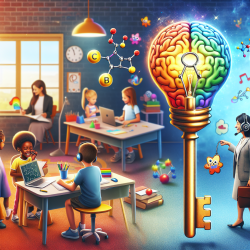In an era where digital solutions are increasingly becoming the norm, the field of therapy, particularly for children in educational settings, has seen a significant shift towards online platforms. This move, accelerated by global challenges such as the COVID-19 pandemic, has prompted a curiosity among government health regulators about the safety and efficacy of online therapy services. As we navigate this digital transformation, ensuring the safety of online therapy is paramount.
One of the primary concerns revolves around the protection of sensitive information. Online therapy jobs, which include services provided to schools for students with Individualized Education Programs (IEPs), require strict adherence to privacy laws and regulations. These services use encrypted platforms that comply with health information privacy standards, ensuring that student data is protected at all times.
Another aspect of safety in online therapy is the quality of care provided. Therapists offering online services are required to meet the same licensure and certification standards as their in-person counterparts. This ensures that students receive the highest quality of care, whether they are working on speech therapy, occupational therapy, or other support services outlined in their IEPs. Additionally, online platforms offer unique advantages, such as the ability to record sessions (with proper consent) for review and quality assurance purposes.
Accessibility is a critical component of the safety and effectiveness of online therapy. For students in remote or underserved areas, online therapy provides a lifeline, ensuring they receive the support they need. This is particularly important for students with IEPs, who require consistent and specialized support to thrive academically and socially.
Moreover, online therapy platforms have developed robust protocols to ensure the safety of students during sessions. This includes measures to verify the identity of both the therapist and the student, secure communication channels, and strict guidelines on how therapy sessions are conducted. These protocols are regularly reviewed and updated to address emerging safety concerns and incorporate advances in technology.
For government health regulators, understanding the mechanisms in place to ensure the safety and efficacy of online therapy is crucial. It inspires confidence in these digital solutions and supports their integration into educational settings. By embracing online therapy, we can expand access to essential services, improve the quality of care, and safeguard the well-being of students, particularly those with specialized needs outlined in their IEPs.
In conclusion, the safety of online therapy services is a collaborative effort that involves service providers, educators, health regulators, and technology experts. Together, we can ensure that every child has access to the support they need in a safe, secure, and effective manner.










